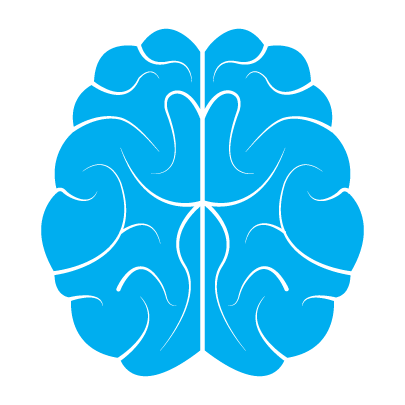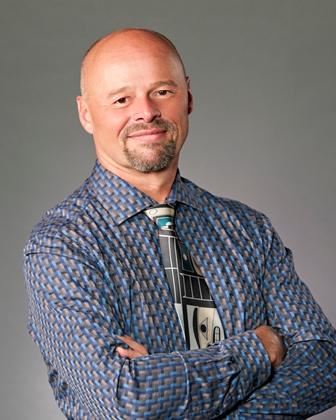
Instructor: Dave Siever, CET
Heart Rate Variability (HRV) is often referred to as a “window to the soul,” a reflection of thoughts and emotions within the individual in which the heart is contained. And yet, for most heart rate variability biofeedback, a simplistic approach has been developed, practiced and unfortunately, accepted as status quo for the treatment of HRV issues.
HRV issues are prevalent in relation to Traumatic Brain Injury and mental health conditions in which anxiety is a major presenting symptom. Also, it appears that the more anxious or afraid of failing that one is, the more likely that person will fail when attempting to breathe to a regimented fashion. So a regimented and paced biofeedback system is particularly distressing to these sufferers. Suppose there was a technique that simultaneously calmed the mind while also providing gentle breathing cues?
The essence of this workshop will be to bring light the way in which the heart’s rhythm is of absolute importance as a guide for counselling and cognitive behavioral techniques, which in themselves, can completely resolve an HRV issue. That being said, the more extreme a mental health condition is, especially that of PTSD, trauma, TBI and the resultant anxiety, the tougher it is to employ traditional HRV biofeedback techniques and the greater the failure rate.
Audio-visual Entrainment (AVE) is a technique employing flashing lights within a pair of sunglasses and pulsing tones within a pair of headphones at various brain wave frequencies. AVE has the exceptional ability to induce deep meditative and parasympathetic states of mind within the user. This workshop will demonstrate a novel and highly effective method involving an AVE-based technique involving a Windows-based “Breathe” app alongside a unique AVE protocol for advanced HRV therapy for the toughest of patients struggling with anxiety. This protocol utilizes the changing of color cues for inspiration and expiration, simultaneously with mind-calming AVE, typically in the alpha brain wave band (although any brain wave band may be chosen).
Who is the Audience: Psychologists, Social Workers, MFTs, Counselors
Level: all
Specific Learning objectives:
- Assess if HRV reflects a psychological conflict and if a counseling approach should be taken for its treatment.
- Learn how to use the Breathe app for self-calming while on a computer.
- Learn how to use the Spectrum AVE eye set alongside the Breathe app for HRV therapy.
Fees: Webinar fee is $45.00 for all ISNR members. The fee for non-members is $60.00. Space is limited, so register early! Registration closes Monday, July 8.
Credits: CE credit is a separate fee of $10.00 for 1 CE credit hour for live presentation attendees only.
- BCIA will issue 1 credit towards BCIA re-certification for full attendance at this webinar.
- 1 hour of APA approved credit will be offered.*
- You may purchase CE credit here.
*This program, when attended live in its entirety, is available for 1 continuing education credit. R. Cassidy Seminars is approved by the American Psychological Association (APA) to offer continuing education for psychologists. R. Cassidy Seminars maintains responsibility for this program. 1 CE hours.
This activity qualifies for 60 minutes of instructional content as required by many national, state and local licensing boards and professional organizations. Save your course outline and certificate of completion, and contact your own board or organization for specific requirements.
Satisfactory Completion: Participants must have paid tuition fee, signed in, attended the entire seminar, completed an evaluation, and signed out in order to receive a certificate. Failure to sign in or out will result in forfeiture of credit for the entire course. No exceptions will be made. Partial credit is not available. Certificates available after satisfactory course completion at www.ceuregistration.com.
Refund policy: If you sign up and pay for a webinar but are unable to attend the live presentation, you will be provided with access to the recorded webinar, Refunds will not be issued.
ISNR is committed to accessibility and non-discrimination in its continuing education activities. ISNR is also committed to conducting all activities in conformity with the American Psychological Association's Ethical Principles for Psychologists. Participants are asked to be aware of the need for privacy and confidentiality throughout the program. If program content becomes stressful, participants are encouraged to bring their concerns up during the question and discussion period, typically held at the end of the presentation. A moderator will be available during the presentation. If participants have special needs, we will attempt to accommodate them. Please address questions, concerns and any complaints to Susan Alvarez, ISNR Executive Administrator.
ISNR 13876 SW 56th Street Miami, FL 33175
Tel: 703-848-1994
Fax: 703-738-7340
office@isnr.net
Because these presentations will be done online, it will be the responsibility of the participant to provide adequate and appropriate computer availability as well as Internet connections that will support this webinar. All efforts and reasonable accommodations will be made to make the information accessible to persons with disabilities.
While this presentation offers no risk in and of itself, it is the responsibility of the individual attendee to determine any risks involved in the implementation of the contents of this presentation.


Dave Siever, CET, graduated in 1978 as an engineering technologist. He later worked in the Faculty of Dentistry at the University of Alberta designing TMJ Dysfunction related diagnostic equipment and research facilities. He organized research projects, taught basic physiology and the advanced TMJ diagnostics course. Dave had noted anxiety issues in many patients suffering with TMJ dysfunction, prompting him to study biofeedback, which he applied to the patients and then later, Dave designed biofeedback devices.
In 1984, Dave designed his first Audio-Visual Entrainment (AVE) device—the “Digital Audio-Visual Integration Device,” or DAVID1. Since this time, through his company, Mind Alive Inc., Dave has been researching and refining AVE technology specifically for use in relaxation, boosting academic and sports performance and treating anxiety, depression, PMS, ADD/ADHD, FMS, SAD, pain, cognitive decline and insomnia, which he presents about primarily at various conferences and for special interest medical/psychology groups.
In 2105, Dave made an exciting discovery in identifying a unique type of TBI that is prevalent throughout society and overlooked by the medical community. Surprisingly, he also found that AVE can restart the brain within 20 minutes. Further research has found that AVE generates large amounts of lactate, which in turn fires up both glia and neurons.
Dave also designs Cranio-Electro Stimulation (CES) products and is a leading provider of transcranial DC stimulation (tDCS) and devices. As a result of Dave’s commitment to research, Mind Alive Inc. now owns three patents involving neurotechnology. Dave continues to conduct research, perform a quantitative EEG service and designs new products pertaining to enhanced performance and mental wellness.
Dave has developed a 30 CEU course on Stimulation Technologies with Saybrook University and the Behavioral Medicine Research and Training Foundation. Dave has also published many articles and studies relating to Audio-Visual Entrainment and brain function and has recently made leading edge breakthroughs in the identification and treatment of concussion.
As a firm believer in keeping his mind alive through neuro-stimulation (or, dancing in his dendrites!), Dave engages in many activities spanning research, flying RC airplanes and drones, kayaking, diving, caving, biking, sailing, music & song-writing plus having fun!
Financial disclosure: CEO and CRO at Mind Alive Inc.
